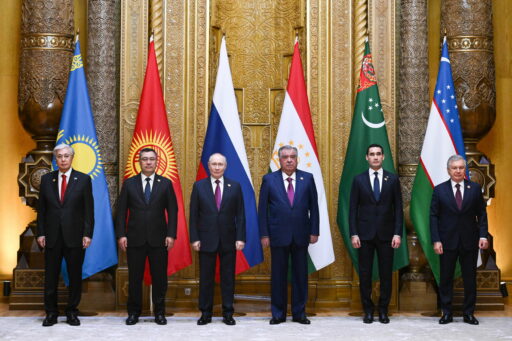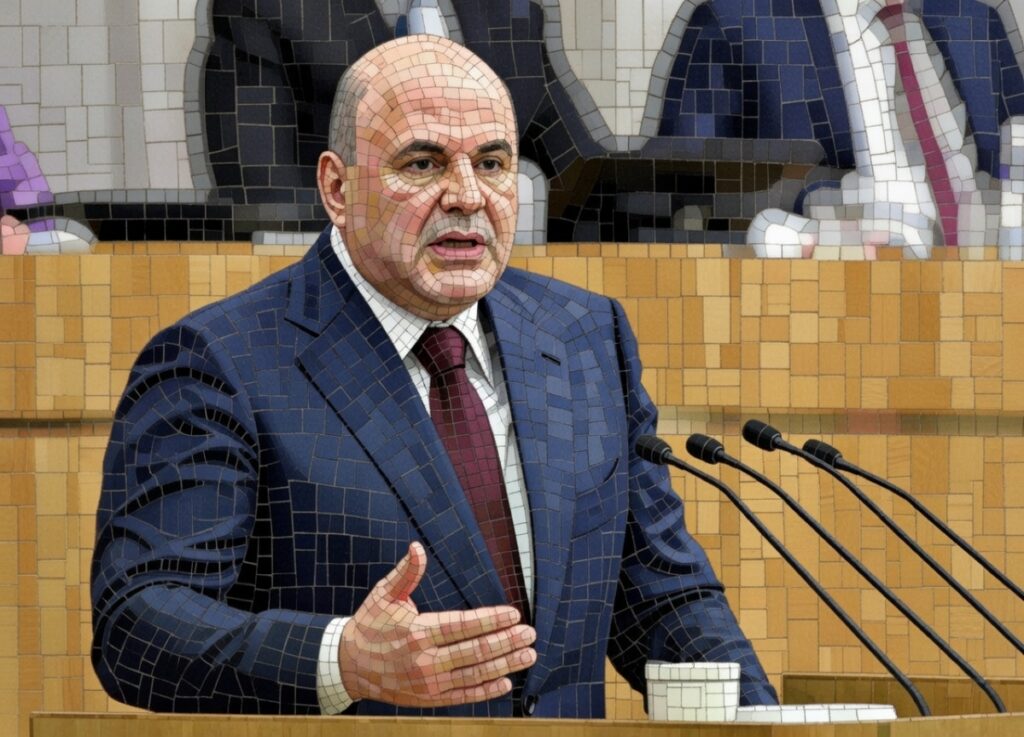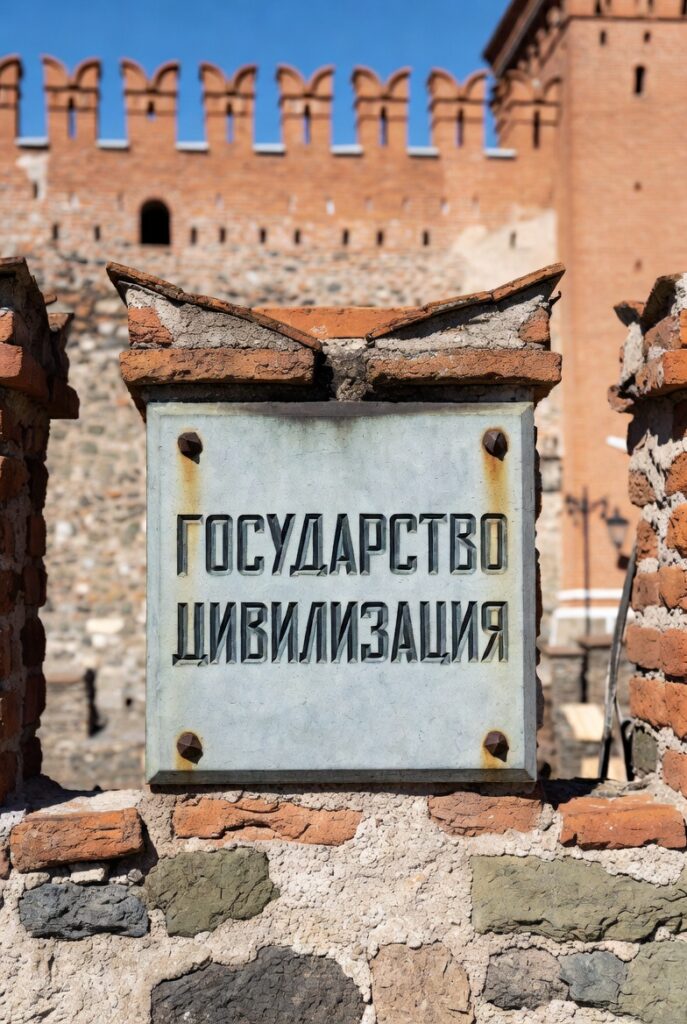Employees of the Kremlin’s political bloc and the political technologists working for them will monitor the situation in African countries friendly to Russia and provide their leadership with «political assistance» if necessary. According to RBC, these countries include Mali, Chad, the Central African Republic (CAR), and Libya. Sources in the Russian government told the outlet that Mali needs help building an electoral system, Libya requires the adoption of a new constitution, and Chad needs «political technology services.»
Additionally, Vedomosti reported that the Kremlin’s political bloc, led by Sergei Kirienko, will oversee the unrecognized republic of South Ossetia and the Moldova direction within the Kremlin. Back in mid-February, we speculated that Kirienko would seek to expand his influence into the realm of foreign policy. At that time, he became the Kremlin’s overseer of Abkhazia, where a political crisis had erupted late last year. Previously, interactions with the republic were handled by Dmitry Kozak, an aide to the president. Kirienko offered his services as a crisis manager and deployed his political technologists to secure the election of the pro-Kremlin candidate Badra Gunba. A strong local politician, Adgur Ardzinba, could have defeated him. The head of the political bloc personally traveled to Abkhazia, publicly establishing himself as its overseer. Kirienko promised the republic’s residents social aid from the Russian budget and assistance in infrastructure development from the same source. However, he made it clear that Moscow’s help would come only if its preferred candidate was elected.
According to official figures, Gunba won the election, though it required two rounds. The Abkhaz opposition claimed serious falsifications but did not challenge the results, noting, however, that it would continue its fight for power in municipal and parliamentary elections. It’s quite likely that another political crisis could flare up in the region soon. The previous protests were sparked by a draft agreement between Abkhazia’s former leadership and Russia, which granted Russian investors tax breaks and the right to employ migrants in their projects (including infrastructure ones). This outraged locals, whose actions ultimately led to the resignation of the Abkhaz authorities. The document was shelved and promised to be revised. However, the interests of Russian businesses—primarily linked to former Agriculture Minister Alexander Tkachev—haven’t gone away. The agreement will likely resurface in some form, potentially reigniting protests, especially given doubts about the legitimacy of Gunba’s election.
Nevertheless, Sergei Kirienko has already claimed success and presented his work to Vladimir Putin as a convincing victory. The Russian president quickly congratulated Abkhazia’s new leader and later met with him. The expansion of the political bloc into Africa, as well as the South Ossetian and Moldovan directions, can be seen as a reward for Kirienko and his team. The head of the Kremlin’s political bloc employed his usual approach: he targets an area overseen by someone else, identifies weaknesses, and offers services tied to his own domain. In Abkhazia’s case, this meant managing elections. Since the campaign of a pro-government candidate involves redirecting all levers of control and interaction with the center to its operators, Kirienko naturally became the Kremlin’s overseer of the unrecognized republic. By demonstrating visible success in an external arena traditionally distant from the political bloc, Kirienko secured a foothold in Abkhazia, enabling further expansion. In higher education, a similar foothold was the ideological course for universities, «Foundations of Russian Statehood,» developed by Kirienko’s ally, political technologist Andrey Polosin. Public appearances on the ground (as in Abkhazia) or signals through business media (as with Africa and Moldova) are part of Kirienko’s tactic to «lock in» the footholds he’s claimed.
For operations in Africa, political technologists tied to the late Wagner Group founder Yevgeny Prigozhin’s «African project» may be enlisted. Prigozhin sought to engage state leaders with electoral technologies, sociology, and the creation of new media. One participant in this Prigozhin project has already taken part in Kremlin events.
If Kirienko achieves relative successes (or events that can be pitched to Putin as successes) in Africa, he could further expand his influence in the external arena. The head of the political bloc continues to outline potential career trajectories to his superiors—now including international engagement. Meanwhile, Kirienko is already connected to numerous domains: education, culture, occupied territories. His people operate there, and he is always ready to offer Putin his services, citing familiarity and experience in those fields.
«United Russia» Instead of «Rodina»
Tambov Mayor Maxim Kosenkov has switched from the «Rodina» party to «United Russia.» This happened ahead of elections to the city council of the regional center and gubernatorial elections, in which acting regional head Yevgeny Pervyshov—formerly the mayor of Krasnodar—is running. The Kremlin is positioning Pervyshov as a war participant (he did indeed announce he was heading to the front). Kosenkov was one of the few municipal leaders unaffiliated with the ruling party. In the mid-2000s, he had already led the city and was considered a fairly popular mayor. This may be why he was arrested and convicted at the time. After his release, the locally popular politician headed the regional branch of the systemic «Rodina» party. In September 2020, «Rodina» candidates (or rather, a pool loyal to Kosenkov) won a majority in the city council elections. This allowed him to take the mayor’s seat, despite the lack of direct mayoral elections in Tambov at the time.
For a long time, Kosenkov was permitted to remain in «Rodina,» though he had to adhere to certain loyalty conditions set by the Kremlin. The mayor supported regional government initiatives and refrained from running in gubernatorial elections, despite having a strong chance of winning. Now, the power vertical demands his integration into its ranks—senior officials must join «United Russia» to be accountable for the party’s results in their territories. Governors and mayors typically lead the ruling party’s regional and municipal branches, so Kosenkov will likely soon head Tambov’s United Russia chapter as well. After this switch, United Russia will likely win the Tambov city council elections as «the mayor’s team.» Had Kosenkov stayed with «Rodina,» United Russia could have lost the campaign again, creating additional headaches for the Kremlin’s political bloc. Now, a United Russia mayor will assist in electing outsider Pervyshov.
Clearly, the terms of the «Crimean consensus» that the Kremlin’s political bloc once offered systemic parties are becoming less advantageous. Parties are gradually losing their governors, with the LDPR already having none left. Now it’s the turn of lower-ranking officials. The system is ready to co-opt the most successful and popular party members into United Russia to leverage their ratings in protest-prone territories.










